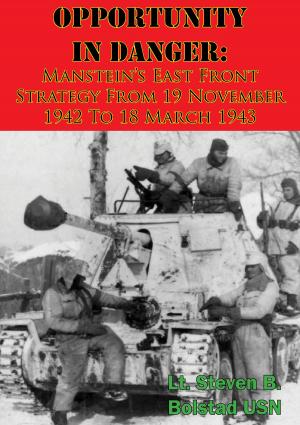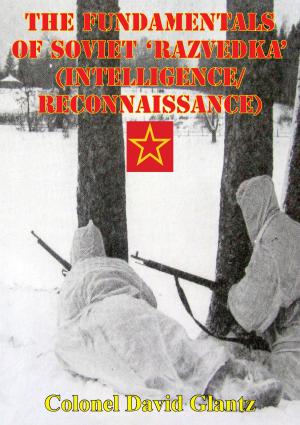Pearl Harbor: Failure of Intelligence?
Nonfiction, History, Germany, European General, Military, United States| Author: | Lt.-Col. Robert F. Piacine | ISBN: | 9781786259448 |
| Publisher: | Verdun Press | Publication: | July 26, 2016 |
| Imprint: | Verdun Press | Language: | English |
| Author: | Lt.-Col. Robert F. Piacine |
| ISBN: | 9781786259448 |
| Publisher: | Verdun Press |
| Publication: | July 26, 2016 |
| Imprint: | Verdun Press |
| Language: | English |
Many scholars and writers state that the surprise the Japanese achieved in their attack on Pearl Harbor resulted from a failure of the U.S. intelligence community to provide adequate, accurate information to government and military decision-makers. These historians presume the intelligence community possessed critical information that was misinterpreted or not appropriately disseminated prior to the attack. Some revisionist historians also subscribe to conspiracy theories and believe that key members of the U.S. government purposely withheld this critical information from the military command in an effort to bring the U.S. into World War II against the Axis powers....
A review of the evidence available from official, public, and private sources, however, indicates these viewpoints are inaccurate. At best they reflect a lack of understanding of the collection capabilities and information available to the U.S. intelligence community before Pearl Harbor; at worst these views are an effort to rewrite history. It is possible to disprove these allegations, however, by examining the history of the U.S. intelligence community prior to the attack; its intelligence collection capabilities; the success or failure of the collection effort; its knowledge of Japanese military preparations for offensive activity; and the utilization of that information by national and military decision-makers.
The lessons of Pearl Harbor are too valuable to be lost to misinterpretation or revisionism. They provide the basis for teaching future generations of government and military leaders the importance of national preparedness and the proper use of intelligence. Without a clear understanding, future leaders may be doomed to repeat the mistakes of the past—an error of major proportions during this time of military downsizing and decreasing power projection capabilities.
Many scholars and writers state that the surprise the Japanese achieved in their attack on Pearl Harbor resulted from a failure of the U.S. intelligence community to provide adequate, accurate information to government and military decision-makers. These historians presume the intelligence community possessed critical information that was misinterpreted or not appropriately disseminated prior to the attack. Some revisionist historians also subscribe to conspiracy theories and believe that key members of the U.S. government purposely withheld this critical information from the military command in an effort to bring the U.S. into World War II against the Axis powers....
A review of the evidence available from official, public, and private sources, however, indicates these viewpoints are inaccurate. At best they reflect a lack of understanding of the collection capabilities and information available to the U.S. intelligence community before Pearl Harbor; at worst these views are an effort to rewrite history. It is possible to disprove these allegations, however, by examining the history of the U.S. intelligence community prior to the attack; its intelligence collection capabilities; the success or failure of the collection effort; its knowledge of Japanese military preparations for offensive activity; and the utilization of that information by national and military decision-makers.
The lessons of Pearl Harbor are too valuable to be lost to misinterpretation or revisionism. They provide the basis for teaching future generations of government and military leaders the importance of national preparedness and the proper use of intelligence. Without a clear understanding, future leaders may be doomed to repeat the mistakes of the past—an error of major proportions during this time of military downsizing and decreasing power projection capabilities.


![Cover of the book Marines In World War II - The Battle For Tarawa [Illustrated Edition] by Lt.-Col. Robert F. Piacine](https://www.kuoky.com/images/2014/august/300x300/9781782892779-O9WM_300x.jpg)

![Cover of the book The Scots Guards in the Great War 1914-1918 [Illustrated Edition] by Lt.-Col. Robert F. Piacine](https://www.kuoky.com/images/2015/november/300x300/9781786255532-qMuK_300x.jpg)







![Cover of the book ANTWERP TO GALLIPOLI - A Year of the War on Many Fronts - and Behind Them [Illustrated Edition] by Lt.-Col. Robert F. Piacine](https://www.kuoky.com/images/2014/august/300x300/9781782895534-vBFM_300x.jpg)


